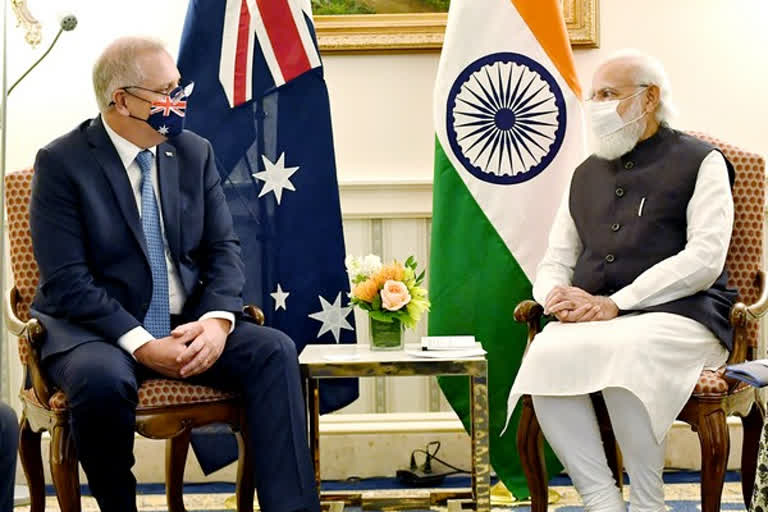New Delhi: Apparel Export Promotion Council (AEPC) on Sunday said duty-free access for the sector to Australia under the trade pact will bring domestic exporters at par with global competitors and make local products competitive. Australia is majorly dependent on China for its apparel imports, however, India has been able to retain its share of around 3 per cent of total apparel imports in Australia despite shrinkage in import orders from across the globe, AEPC Chairman Narendra Goenka said in a statement.
Australia is the largest apparel importer in the southern hemisphere. Indian apparels currently face an average tariff of 4.8 per cent in Australia as against zero duty for apparels from China and Bangladesh. Duty free access to Indian apparels will bring us at par with global competitors and make our products competitive," Goenka said. He added that removal of the tariff differential vis--vis China would further help the Indian garment industry to take advantage of the China Plus One strategy being embraced by many countries.
"Australia is a focus area for Indian apparel exports since similar products are manufactured in India at similar price points, he said adding India has the potential to export knitted jerseys, pullovers and t-shirts of man-made fibers which is a big chunk of Australian apparel imports. Jerseys, pullovers, cardigans, waist-coats and similar articles, knitted/ crocheted, of MMF have been the biggest apparel imports last year.
"The Indian apparel industry is good for producing spring and summer products, but not as good for making winter goods. Thus, Indian factories do not utilize their full capacity while producing winter goods. Australia, which is in the southern hemisphere, will need spring and summer products when it's a lean season for Indian apparel factories," he said. He said that zero duty deal with Australia in the southern hemisphere will keep Indian factories fully utilized during its lean period with orders for spring and summer products that Indian players are best in. "This will help utilize the full capacity round the year. Zero duty access would more than triple Indian apparel exports to Australia in three years, Goenka said.
PTI



